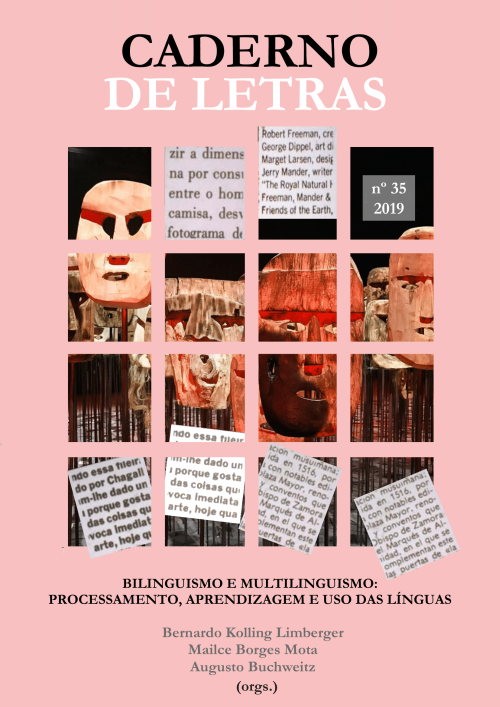DESAFIOS DA SUSTENTABILIDADE DO ENSINO DE PORTUGUÊS LÍNGUA MUNDIAL NOS E.U.A.: PROJETO VÍDEO COMO ESTRATÉGIA INTERCULTURAL
##plugins.themes.bootstrap3.article.main##
Resumo
Este estudo de caso aborda a comunicação intercultural na tarefa de vídeo em ambiente instrucional universitário de Português Língua Mundial nos E.U.A. (ACTFL, 2017). Discute-se uma intervenção de pesquisa do modelo curricular inverso, em que o objetivo abrangente é fornecer comentário eficaz a fim de aperfeiçoar o desempenho do aluno (WIGGINS & MCTIGHE, 2007). Correlativamente, os debates acadêmicos que ampliam a comunicação do modo interpessoal para os modos interpretativo e expositivo são exploradas, uma vez que a literatura pertinente também apoia que há troca de informações nas habilidades de leitura, escrita e escuta (ADAIR-HAUCK & TROYAN, 2013). Corroborando o conceito de competência intercultural de Byram (1997), os resultados apontam para o modo de apresentação como o produto dos aprendizes para a construção de significado e de interação, respectivamente, como suas próprias perspectivas e padrões do português pluricêntrico. A reflexão dos participantes sobre identidade coletiva e o alcance da expressão individual formada em grupo para abordar público e tarefa específicas esclarecem a combinação particular de aprendizes e das culturas representadas.
Palavras-chave: Comunicação intercultural; modelo curricular inverso; português pluricêntrico; abordagem língua mundial.
Downloads
##plugins.themes.bootstrap3.article.details##
Autores que publicam no Caderno de Letras concordam com os seguintes termos:
a) Autores mantêm os direitos autorais e concedem à revista o direito de primeira publicação, sendo o trabalho simultaneamente licenciado sob a Licença Creative Commons BY-NC-ND 2.5 BR, que permite o compartilhamento do trabalho com reconhecimento da autoria e publicação inicial nesta revista.
b) Autores têm autorização para assumir contratos adicionais separadamente, para distribuição não-exclusiva da versão do trabalho publicada nesta revista (ex.: publicar em repositório institucional ou como capítulo de livro), com reconhecimento de autoria e publicação inicial nesta revista.
c) Autores têm permissão e são estimulados a publicar e distribuir seu trabalho online (ex.: em repositórios institucionais ou na sua página pessoal) após o processo editorial, já que isso pode gerar alterações produtivas, bem como aumentar o impacto e a citação do trabalho publicado.
d) Autores de trabalhos aprovados autorizam a revista a, após a publicação, ceder seu conteúdo para reprodução em indexadores de conteúdo, bibliotecas virtuais e similares.
e) Os autores assumem que os textos submetidos à publicação são de sua criação original, responsabilizando-se inteiramente por seu conteúdo em caso de eventual impugnação por parte de terceiros.
